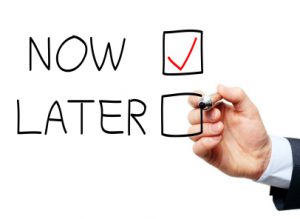 How can something as simple as a blank page be so intimidating? How does it have the power to simultaneously shut down your mind and suggest a million other things you could be doing: writer’s block is real. How can you stop procrastinating and start writing: from a homework essay to a doctoral thesis, from starting a journal to finishing that novel you’re publisher keeps calling about, these tried-and-true steps will help you write.
How can something as simple as a blank page be so intimidating? How does it have the power to simultaneously shut down your mind and suggest a million other things you could be doing: writer’s block is real. How can you stop procrastinating and start writing: from a homework essay to a doctoral thesis, from starting a journal to finishing that novel you’re publisher keeps calling about, these tried-and-true steps will help you write.
Preparing your workspace & materials
First, spend a few minutes tidying up. You know as soon as you sit down your brain is going to suggest that you finish folding the laundry, wash your breakfast dishes or perhaps deep clean all the kitchen cabinets rather than start writing. Without going too far and starting a spring cleaning project, spend 5 or 10 minutes actively tidying up, especially what you can see from your writing workspace. Use this time to stretch, move around, bend over and get your blood flowing. Just a few minutes of exercise can put you in a much better frame of mind and help you focus.
Next, set up your workspace. You know you’re going to need your writing materials a notepad and a nice pen, but that’s not all you’re going to need. As soon as you sit down you’ll think of something else, so start by setting yourself up for success. You’ll need an extra pen and a bottle of water, at the very least. Make yourself a drink, put some essential oils in the diffuser, turn on the right lighting and really set the mood for relaxation and focus. Set the thermostat and grab a throw so you can adjust your temperature without getting up. Music can be helpful for focus during the research part of a writing project, but at the writing stage, it’s a distraction. So set up a quiet workspace or perhaps some white noise to block everything out.
No screens. Can this really be a modern tip for successful writing? You’ll find that curling up in a comfortable chair with a notepad and pen will lead to much more focus and creativity then using a laptop at this stage. Perhaps your research materials are online so you really do need to keep your screens on, but you can minimize unwanted distractions by spending a few minutes checking all your notification settings and turning everything off. All your messaging apps and alerts should be set to silent – no vibration, no lights, no popups. This is your time. You should be able to concentrate and focus and not feel bad about tuning out the world for a few minutes.
Write an outline. The first benefit of an outline is that you can sit down and immediately write something on that blank piece of paper, which helps get you past the initial mental block. Choose the simplest possible outline structure that works for your project, and write it down the left side of your page. For example, the simplest essay outline could be: title, introduction, 1, 2, 3, conclusion. A simple journal outline could be a series of what/when/who/why/how questions.
Fill out your outline. Don’t use full sentences or worry about perfection at this stage, just write key words and phrases What are your main points? Start to form paragraphs by writing down supporting thoughts for each main point, and decide what references from the research material you want to use in each paragraph. Having the main body finished will give you an idea of the title and words or phrases for your introduction and conclusion.
And now, armed with an outline that’s almost a rough draft for your project, writing looks like a much less daunting task than it did a few minutes ago. You could even complete it just by voice typing it based on your outline. Celebrate by making yourself another drink, and some proofreading and revision are all that’s left.
Sometimes writers are overwhelmed with creative ideas that flow effortlessly on to the page. But more often, you need to get something written even when you’re not feeling like it. As you practice setting up your workspace and writing an outline, completing these steps will get faster and easier. You’ll find that using an outline will give you clarity and purpose in your writing. Without feeling overwhelmed by the prospect, you’ll be able to get started on and finish writing projects like a professional writer.
